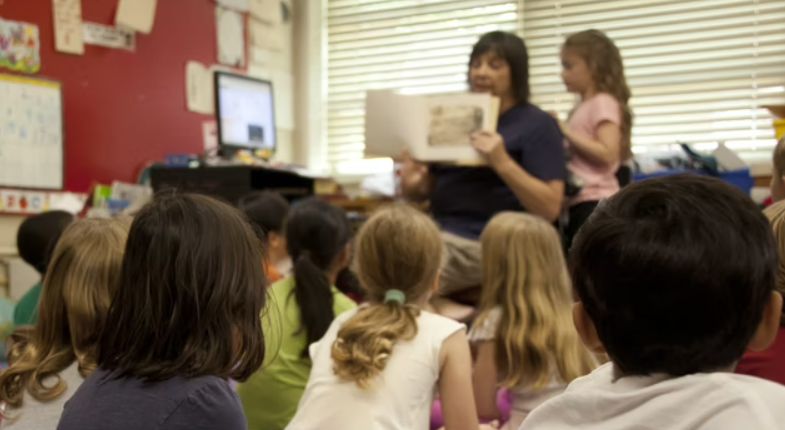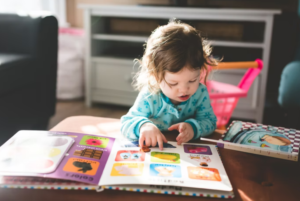

We all love a rhyme and a sing-along tune, but did you know World Nursery Rhyme Week 2021 is coming up soon? It’s the perfect chance to explore the qualities and benefits of Nursery Rhymes:
Kids love a good rhyme, so read on to understand why…

“As each word is acquired in the young child’s lexicon, it moves from the barest familiarity to an in-depth knowledge of that word, with all manner of associations and contexts. As the children say each word of a poem, the cadence of the lines helps to convey the meaning and the mood. Children pick up the rhythm and, by speaking more slowly, gain awareness and control of their voices.”
The Reading Framework, UK Department of Education, July 2021
Rhymes help children learn everything from new words to new moods, meaning and mental control. They are invaluable resources for all-round cognitive learning, so let’s explore things more closely:
How nursery rhymes help with vocal development
There’s a reason poems like Itsy Bitsy Spider and Hickory Dickory Dock have been passed down the generations. These kinds of repetitive rhymes are a godsend when children are learning to speak as they are full of easy, similar-sounding words.
The repeating of words helps your mouth and tongue muscles develop so that the new words feel more familiar and not as unusual to say.
Poems and rhymes are a great way to learn the correct pronunciation of a word as you can practise saying them. There is significantly less fear involved when learning with everyone else in a song instead of alone in front of your peers.
Using like-sounding words helps children develop the skills to differentiate words from one another. It supports phonics learning and development too.
Rhyming poems offer the opportunity to learn new words easily and they help kids become familiar with new language tools like alliteration and onomatopoeia.
How nursery rhymes improve memory
Learning all these new words, tools and ideas is beneficial for a child’s mind.
In the first instance, they help build up memories in the brain and develop further capabilities due to the repeating patterns and sounds. It’s almost like math in that there is sequencing and numbers – that’s why counting rhymes are so common. The science behind it all is called mnemonics. In fact, the word mnemonic originated from Greek Mythology and the Greek word for memory.
Secondly, rhyming makes encoding memories and information much easier as you can more easily remember the structure of what you are trying to think about – it’s a kind of acoustic encoding. This variety of learning is often used throughout life with spelling (‘I before E except after C), time and date planning (30 days hath September…), and more.
And it helps us pass on history and culture too. In the olden days, all they had to pass on stories were the words in their head, so the stories were often sung or rhymed for easy remembering.
How nursery rhymes benefit emotional learning
It may not be obvious, but nursery rhymes and songs are another way children learn to understand emotions and social cues.
For example, if a poem is upbeat and about something silly and funny, the rhymes and words used generally reflect that, which helps the children understand humorous, light-hearted situations. Alternatively, if a poem is sad or about someone concerned, the tone and tune tend to follow that theme.
Think about the Jack and Jill poem as an example. During the first phrase, the poem and the tune are all inflected upwards:
“Jack and Jill went up the hill to fetch a pail of water”
But on the second line, when Jack and Jill hurt themselves, the inflexions all turn down and sound less excited:
“Jack fell down and broke his crown, and Jill came tumbling after.”
These rhymes, word choices and song tones help children understand how sad or downhearted things sound, thereby helping them understand the social cues around them more.
They can also support social development in that kids all know the rhyme and therefore have something in common. They are also comforting and help a child stay calm in new situations and environments – as Miley sang in her song, “They’re playin’ my song, the butterflies fly away…”.
What can you do to support World Nursery Rhyme Week 2021?
At the end of the day, nursery rhymes and playful songs are more than something catchy to remember. They’re designed and created to support a child’s language, memory, maths, history, speech skills and more. Each rhyme is an important tool in cognitive development, so speak, sing and dance along to as many as you like and watch the children flourish.
